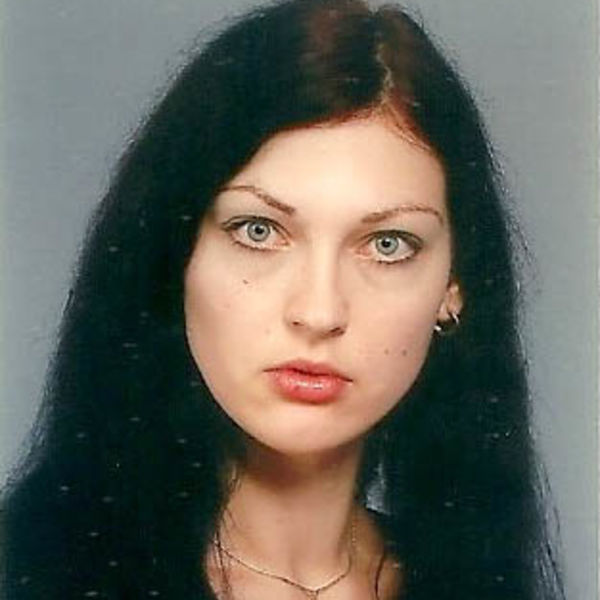
funded by the Heinrich Böll Foundation
Mail: zimmermann.margarete(at)posteo(dot)de
Margarete (Rita) Zimmermann has been in the Imre Kertész Kolleg graduate school since May 2016. She has been a PhD student at the Friedrich Schiller University Jena since February 2013 and holds a scholarship from the Heinrich Boell Foundation. Prior to that (2010 - 2013) she worked as co-director and lecturer for didactical training workshops for history teachers within the Teachers' Training School of the Memorial of political repression "Perm-36" at Perm, Russia. Zimmermann holds a Master's degree (Magistra Artium) in Eastern European History, East Slavic Studies and Intercultural Business Communication from University of Jena received in 2010.
Victory over the Evil. Changes and traditions within the politics of history of the Russian Orthodox Church
The commemoration of the experience of violence during the 20th century regularly leads towards struggles for interpretative predominance (hegemony) in post-Soviet Russia. Much more as we know from the countries of the western hemisphere, the entire memory discourse is highly politicised, which influences the religious forms of commemoration too: Victims of violence are declared as New Martyrs and integrated in the salvific history, in order to fulfil the official request for 'positive heroes' to support national identity. In return, the state supports the church, for example by the offering of profiling platforms. My research is focused on frames, conditions and forms of this reciprocal relationship; it´s aim is the presentation of a theoretically based method for the understanding of the processes and mechanisms of perception, interpretation and implementation of the Soviet history by the Russian Orthodox Church.It is surprising how few attention was paid to the ROC as an actor of generation and mediation of memory by recent research on memory culture; up to now, there does not exist a single monograph on this topic. With my thesis, I hope to close this gap.According to K. Fischer, there can be stated a 'passive turn from sacrifice to victim as current predominant semantics in the post-heroic, western societies'. A memory to the passive victims of violence, linked to the questions of guilt and offenders´ responsibility, take the place of the glorious national master-stories. The setting in Russia is rather to be compared with the one in Western Europe after 1945: In many countries the victory in World War II produced a delay of a debate on the delicate moments in proper history by several. Moreover, in Russia the traumatic experience of the disintegration of the Soviet Union and thereby the abolition of traditional values and identification schemata led to the result, that - as Jutta Scherrer put it - the memory to the victory still represents the only consolidating element of the post-Soviet society ("das einzige die postsowjetische Gesellschaft konsolidierende Moment"). Not the passive victims come to the fore but the heroes, having performed their sacrifice consciously and for a higher scope. The process of religious politics of memory takes place in a field which is defined by framework and communication conditions to be detected only by means of a systematic, diachronical access. Best results are to be expected from the sophisticated instrument of discourse analysis, expanded by the assistance of hegemonic theory.
“Erinnerung an den Widerstand – Politik in der Gegenwart: Russische Orthodoxe Variationen im Umgang mit der sowjetischen Geschichte und den Neumärtyrern und Bekennern des 20. Jahrhunderts.“ in Oleksandr Zabirko and Jakob Mischke (eds.), Aufbruch und Resignation in Russland und der Ukraine. Protestbewegungen im langen Schatten des Kremls, zum Druck angenommen [2018].
“Sehnsucht nach der Monarchie? Die Russische Kirche im geschichtspolitischen Diskurs um die Rolle des letzten Zaren”. Russland-Analysen 358 (06.07.2018): pp.7-13, Online: http://www.laender-analysen.de/russland/pdf/RusslandAnalysen358.pdf.
“Katastrophe und Wiedergeburt. Erinnerung an 1917/18 in der ROK“. RGOW 7-8 (2018): pp.13-18.
“Never Again! Remembering October 1917 in the Contemporary Russian Orthodox Church.“ Scando-Slavica 64 (2018) 1: pp.95-106, Online: https://doi.org/10.1080/00806765.2018.1449435.
“Einheit und Versöhnung. Die Orthodoxe Kirche und die Erinnerung an die Revolution”. Osteuropa 6-8 (2017): pp.259-272.
“Die Russische Orthodoxe Kirche als erinnerungspolitischer Akteur (1995-2009). Der Schießplatz Butovo als Fallbeispiel für die postsowjetische Gedenkkultur,“ in Jörg Ganzenmüller and Raphael Utz (eds.) Sowjetische Verbrechen und russische Erinnerung: Orte - Akteure – Deutungen. Europas Osten im 20. Jahrhundert, Vol. 4 (München: Oldenbourg 2014), pp.59-90.
“’Gott ist mit uns!’ Die Kirchen und der Euromajdan”. Osteuropa 5-6 (2014): pp.259-276 (mit Michael Melnikow).
Reviews and further publications
Rezension von: Turns of Faith, Search for Meaning. Orthodox Christianity and Post-Soviet Experience, by Alexander Agadjanian (Frankfurt a.M. et al.: Lang 2014). In Jahrbücher für Geschichte Osteuropas.
[co-Redaktion] Website: "[Ge]denkmuster: Sowjetische Verbrechen - Russische Erinnerung". unter: www.gedenkmuster.uni-jena.de.
“Erinnerung an den Widerstand – Politik in der Gegenwart: Zur Identitätskonstruktion innerhalb der Russischen Orthodoxen Kirche und ihrem Verhältnis zur Geschichte des 20. Jahrhunderts”, in Widerstand und Identität. Protestbewegungen in Osteuropa. Beiträge der 23. Tagung Junger Osteuropa-Experten 19. bis 21. Juni 2015 in Tutzing (2015), pp.33-34.